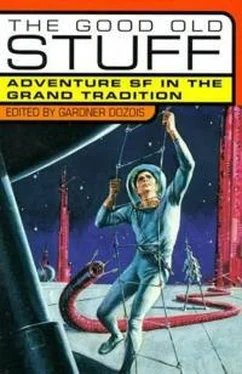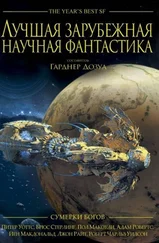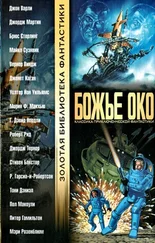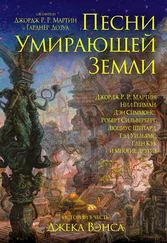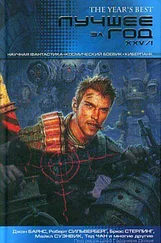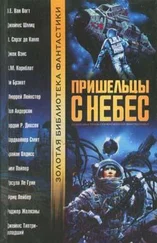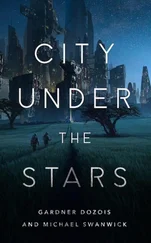Гарднер Дозуа - The Good Old Stuff
Здесь есть возможность читать онлайн «Гарднер Дозуа - The Good Old Stuff» весь текст электронной книги совершенно бесплатно (целиком полную версию без сокращений). В некоторых случаях можно слушать аудио, скачать через торрент в формате fb2 и присутствует краткое содержание. Год выпуска: 1998, ISBN: 1998, Издательство: St. Martin's Griffin, Жанр: Фантастика и фэнтези, на английском языке. Описание произведения, (предисловие) а так же отзывы посетителей доступны на портале библиотеки ЛибКат.
- Название:The Good Old Stuff
- Автор:
- Издательство:St. Martin's Griffin
- Жанр:
- Год:1998
- ISBN:0-312-19275-4
- Рейтинг книги:3 / 5. Голосов: 1
-
Избранное:Добавить в избранное
- Отзывы:
-
Ваша оценка:
- 60
- 1
- 2
- 3
- 4
- 5
The Good Old Stuff: краткое содержание, описание и аннотация
Предлагаем к чтению аннотацию, описание, краткое содержание или предисловие (зависит от того, что написал сам автор книги «The Good Old Stuff»). Если вы не нашли необходимую информацию о книге — напишите в комментариях, мы постараемся отыскать её.
The Good Old Stuff — читать онлайн бесплатно полную книгу (весь текст) целиком
Ниже представлен текст книги, разбитый по страницам. Система сохранения места последней прочитанной страницы, позволяет с удобством читать онлайн бесплатно книгу «The Good Old Stuff», без необходимости каждый раз заново искать на чём Вы остановились. Поставьте закладку, и сможете в любой момент перейти на страницу, на которой закончили чтение.
Интервал:
Закладка:
He came alone into the wineshop, wrapped in a dark red cloak, with the cowl drawn over his head. He stood for a moment by the doorway and one of the slim dark predatory women who live in those places went to him, with a silvery chiming from the little bells that were almost all she wore.
I saw her smile up at him. And then, suddenly, the smile became fixed and something happened to her eyes. She was no longer looking at the cloaked man but through him. In the oddest fashion—it was as though he had become invisible.
She went by him. Whether she passed some word along or not I couldn’t tell but an empty space widened around the stranger. And no one looked at him. They did not avoid looking at him. They simply refused to see him.
He began to walk slowly across the crowded room. He was very tall and he moved with a fluid, powerful grace that was beautiful to watch.
People drifted out of his way, not seeming to, but doing it. The air was thick with nameless smells, shrill with the laughter of women.
Two tall barbarians, far gone in wine, were carrying on some intertribal feud and the yelling crowd had made room for them to fight.
There was a silver pipe and a dram and a double-banked harp making old wild music. Lithe brown bodies leaped and whirled through the laughter and the shouting and the smoke.
The stranger walked through all this, alone, untouched, unseen. He passed close to where I sat. Perhaps because I, of all the people in that place, not only saw him but stared at him, he gave me a glance of black eyes from under the shadow of his cowl—eyes like blown coals, bright with suffering and rage.
I caught only a glimpse of his muffled face. The merest glimpse—but that was enough. Why did he have to show his face to me in that wineshop in Barrakesh?
He passed on. There was no space in the shadowy corner where he went but space was made, a circle of it, a moat between the stranger and the crowd. He sat down. I saw him lay a coin on the outer edge of the table. Presently a serving wench came up, picked up the coin and set it was as if she waited on an empty table.
I turned to Kardak, my head drover, a Shunni with massive shoulders and uncut hair braided in an intricate tribal knot. “What’s all that about?” I asked.
Kardak shrugged. “Who knows?” He started to rise. “Come, JonRoss. It is time we got back to the Serai.”
“We’re not leaving for hours yet. And don’t lie to me, I’ve been on Mars a long time. What is that man? Where does he come from?”
Barrakesh is the gateway between north and south. Long ago, when there were oceans in equatorial and southern Mars, when Valkis and Jekkara were proud seats of empire and not thieves’ dens, here on the edge of the northern Drylands the great caravans had come and gone to Barrakesh for a thousand thousand years. It is a place of strangers.
In the time-eaten streets of rock you see tall Keshi hillmen, nomads from the high plains of Upper Shun, lean dark men from the south who barter away the loot of forgotten tombs and temples, cosmopolitan sophisticates up from Kahora and the trade cities, where there are spaceports and all the appurtenances of modern civilization.
The red-cloaked stranger was none of these.
A glimpse of a face—I am a planetary anthropologist. I was supposed to be charting Martian ethnology and I was doing it on a fellowship grant I had wangled from a Terran university too ignorant to know that the vastness of Martian history makes such a p project hopeless.
I was in Barrakesh, gathering an outfit preparatory to a year’s study of the tribes of Upper Shun. And suddenly there had passed close by me a man with golden skin and un-Martian black eyes and a facial structure that belonged to no race I knew. I have seen the carven faces of fauns that were a little like it.
Kardak said again, “It is time to go, JonRoss!”
I looked at the stranger, drinking his wine in silence and alone.
“Very well, I’ll ask him.”
Kardak sighed. “Earthmen,” he said, “are not given much to wisdom.”
He turned and left me.
I crossed the room and stood beside the stranger. In the old courteous High Martian they speak in all the Low-Canal towns I asked permission to sit.
Those raging, suffering eyes met mine. There was hatred in them, and scorn, and shame. “What breed of human are you?”
“I am an Earthman.”
He said the name over as though he had heard it before and was trying to remember. “Earthman. Then it is as the winds have said, blowing across the desert—that Mars is dead and men from other worlds defile her dust.” He looked out over the wineshop and all the people who would not admit his presence. “Change,” he whispered. “Death and change and the passing away of things.”
The muscles of his face drew tight. He drank and I could see now that he had been drinking for a long time, for days, perhaps for weeks.
There was a quiet madness on him.
“Why do the people shun you?”
“Only a man of Earth would need to ask,” he said and made a sound of laughter, very dry and bitter.
I was thinking, A new race, an unknown race! I was thinking of the fame that sometimes comes to men who discover a new thing, and of a Chair I might sit in at the University if I added one bright unheard-of piece of the shadowy mosaic of Martian history.
I had had my share of wine and a bit more. That Chair looked a mile high and made of gold.
The stranger said softly, “I go from place to place in this wallow of Barrakesh and everywhere it is the same. I have ceased to be.” His white teeth glittered for an instant in the shadow of the cowl. “They were wiser than I, my people. When Shandakor is dead, we are dead also, whether our bodies live or not.”
“Shandakor?” I said. It had a sound of distant bells.
“How should an Earthman know? Yes, Shandakor! Ask of the men of Kesh and the men of Shun! Ask the kings of Mekh, who are half around the world! Ask of all the men of Mars—they have not forgotten Shandakor! But they will not tell you. It is a bitter sham e to them, the memory and the name.”
He stared out across the turbulent throng that filled the room and flowed over to the noisy street outside. “And I am here among them—lost.”
“Shandakor is dead?”
“Dying. There were three of us who did not want to die. We came south across the desert—one turned back, one perished in the sand, I am here in Barrakesh.” The metal of the wine-cup bent between his hands.
I said, “And you regret your coming.”
“I should have stayed and died with Shandakor. I know that now. But I cannot go back.”
“Why not?” I was thinking how the name John Ross would look, inscribed in golden letters on the scroll of the discoverers.
“The desert is wide, Earthman. Too wide for one alone.”
And I said, “I have a caravan. I am going north tonight.”
A light came into his eyes, so strange and deadly that I was afraid.
“No,” he whispered. “No!”
I sat in silence, looking out across the crowd that had forgotten me as well, because I sat with the stranger. A new race, an unknown city.
And I was drank.
After a long while the stranger asked me, “What does an Earthman want in Shandakor?”
I told him. He laughed. “You study men,” he said and laughed again, so that the red cloak rippled.
“If you want to go back I’ll take you. If you don’t, tell me where the city lies and I’ll find it. Your race, your city, should have their place in history.”
He said nothing but the wine had made me very shrewd and I could guess at what was going on in the stranger’s mind. I got up.
“Consider it,” I told him. “You can find me at the serai by the northern gate until the lesser moon is up. Then I’ll be gone.”
Читать дальшеИнтервал:
Закладка:
Похожие книги на «The Good Old Stuff»
Представляем Вашему вниманию похожие книги на «The Good Old Stuff» списком для выбора. Мы отобрали схожую по названию и смыслу литературу в надежде предоставить читателям больше вариантов отыскать новые, интересные, ещё непрочитанные произведения.
Обсуждение, отзывы о книге «The Good Old Stuff» и просто собственные мнения читателей. Оставьте ваши комментарии, напишите, что Вы думаете о произведении, его смысле или главных героях. Укажите что конкретно понравилось, а что нет, и почему Вы так считаете.
